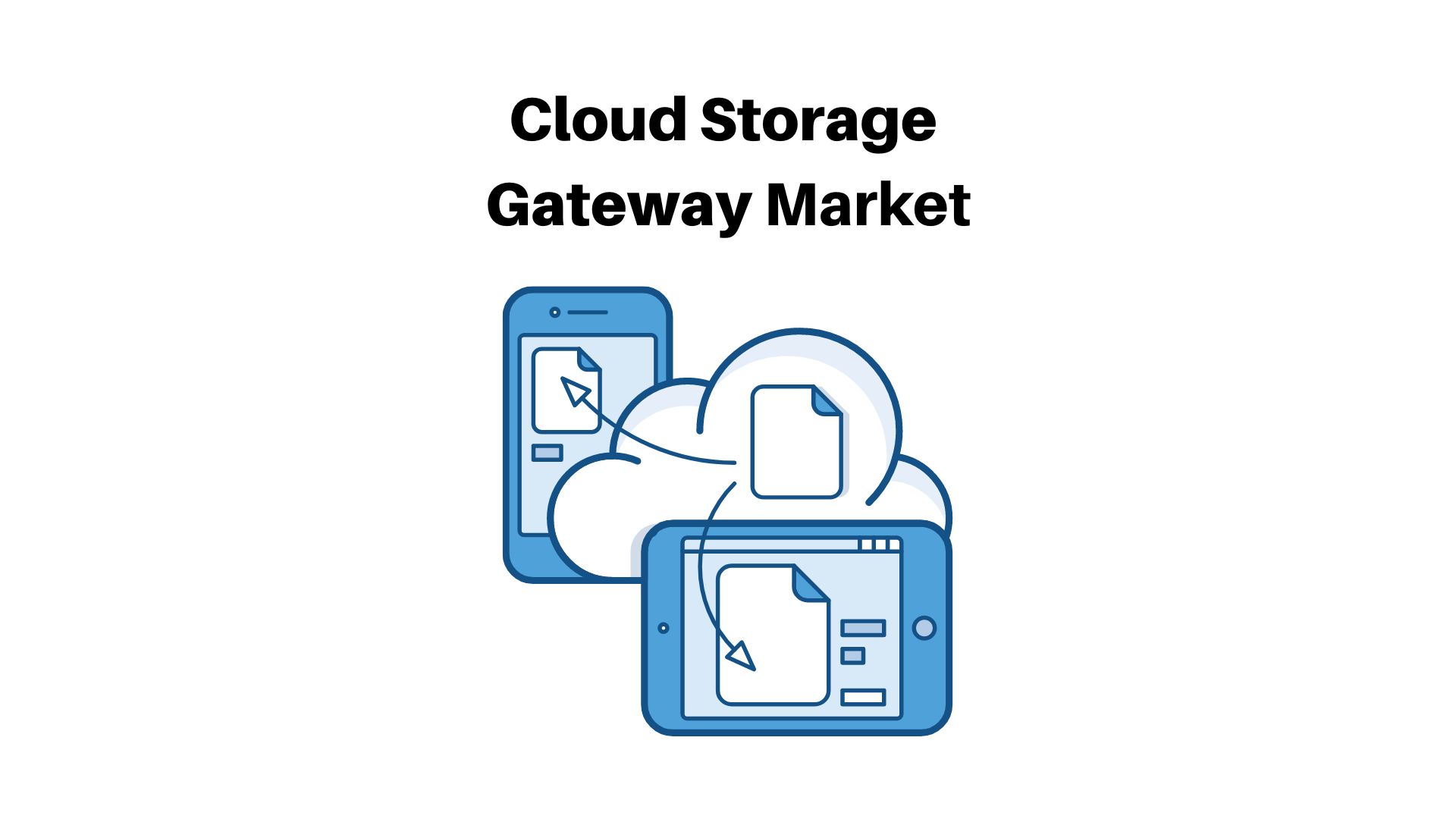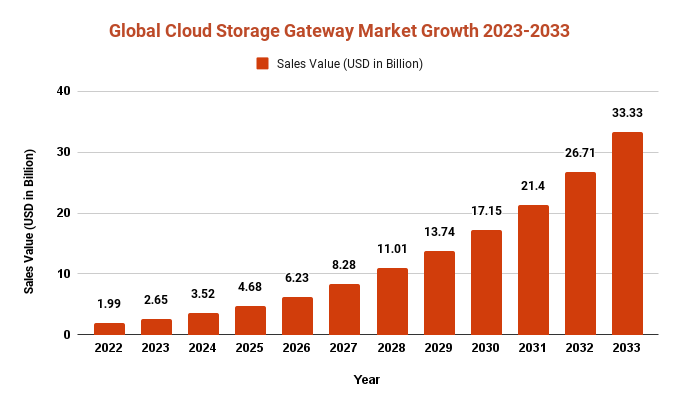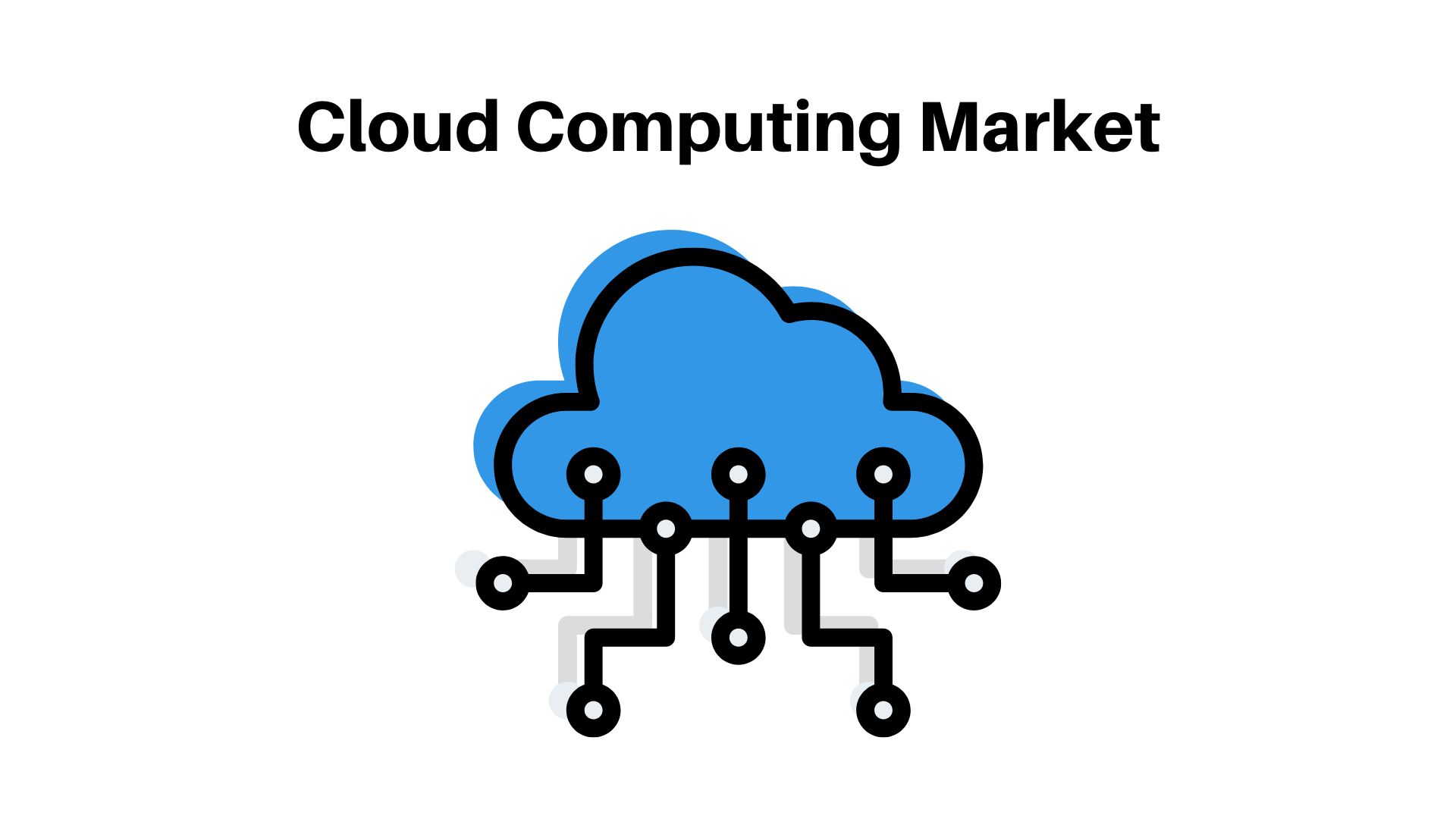Cloud Storage Gateway Market to Witness Steady Growth at a CAGR of 12.40% During the Forecast Period 2023-2033

Page Contents
Market Overview
Published Via 11Press: Cloud Storage Gateway (CSG) is a software or hardware appliance that acts as an intermediary between on-premises data center storage and cloud-based storage services. It provides an efficient interface between these two storage types, enabling organizations to take advantage of cloud storage's scalability, cost savings and improved availability without needing to completely move their data there.
Global Cloud Storage Gateway market size is expected to be worth around USD 33.33 Bn by 2033 from USD 1.99 Bn in 2022, growing at a CAGR of 24.80% during the forecast period 2023 to 2033.
CSG typically runs as a virtual machine or appliance running on a local server in the data center. It presents a virtual storage interface, allowing users to access cloud storage as if it were an accessible file server or array. The gateway caches frequently accessed data locally, reducing latency and improving performance; less frequently used data remains in the cloud.
What Are the Different Types of Cloud Storage Gateway?
- File-Based CSG: This type of gateway provides file-level access to cloud storage services. It presents cloud storage as a file share, allowing users to access files stored remotely as if they were stored locally. File-based CSGs are commonly employed for file archiving, backups, and disaster recovery operations.
- Block-Based CSG: This type of gateway provides block-level access to cloud storage services. It presents cloud storage as a block storage device and lets users view that storage as though it were attached directly to their local server. Block-based CSGs are commonly employed for storage consolidation, virtual machine migration, and disaster recovery scenarios.

Key Takeaways
- Cloud Storage Gateway is a software or hardware appliance that acts as an intermediary between on-premises storage and cloud storage services, enabling organizations to take advantage of cloud storage's scalability, cost savings, and improved availability without having to migrate all their data entirely into the cloud.
- File-based Cloud Storage Gateways are commonly used for file archiving, backups, and disaster recovery while block-based Cloud Storage Gateways can be utilized for storage consolidation, virtual machine (VM) migrations, and disaster recoveries.
- Cloud Storage Gateway is typically implemented as a virtual machine or appliance running on a local server in the data center, presenting cloud storage as though it were stored locally. By caching frequently accessed data locally and optimizing performance, this gateway helps organizations take advantage of cloud storage services while still having control over their own data and keeping it within their own walls.
- Cloud Storage Gateway plays an integral role for organizations looking to leverage these services while keeping control over their storage at hand.
Request For Sample Report Here: https://marketresearch.biz/report/cloud-storage-gateway-market/request-sample/
Regional Snapshot
- North America is the largest market for CSG because of its high adoption rate of cloud services, and advanced IT infrastructure. Cloud storage solutions are being used by many businesses, large and small, to reduce costs and improve data management. This is why there is a high demand for CSG in the region.
- Europe is a major market for CSG because of the increasing adoption of cloud storage solutions by organizations. Many small and medium-sized companies in the region are looking for these services to lower costs and improve data management. CSG is becoming more popular in Europe due to the increasing demand for cloud storage options that are secure and scalable, data protection regulations, and hybrid cloud solutions.
- CSG has seen Asia Pacific experience rapid growth due to the increasing use of cloud storage solutions and an influx of small and mid-sized businesses. Cloud storage services are being adopted by many emerging economies throughout the region to improve data management and reduce costs. Secure scalability requirements, hybrid cloud adoption rate, as well as an increase in mobile device penetration all contribute to driving demand for CSG across this region.
- Latin America's cloud storage gateway market is growing due to the increasing adoption of cloud storage and growth among small- and medium-sized businesses. Cloud solutions are being adopted by many emerging economies throughout the region, providing better data management at lower costs. CSG (Cloud Storage Gateways) have seen a resurgence due to hybrid cloud options and secure, scalable cloud storage options becoming more popular.
Drivers
- One of the primary drivers of CSG adoption is the need for scalable storage solutions. Cloud storage services offer virtually unlimited capacity, and CSG allows organizations to seamlessly integrate their on-premises storage with cloud storage services to scale as needed. CSG solutions reduce storage costs by storing less frequently accessed data in the cloud and eliminating expensive on-premises infrastructure requirements. Furthermore, CSG solutions can be utilized to replicate data to the cloud for disaster recovery purposes – in case of a local outage or disaster, data can be quickly restored from the cloud minimizing downtime and data loss.
- CSG solutions can guarantee the security and integrity of data by encrypting it both during transit and at rest. Doing so helps guard against data breaches, unauthorized access, and other security threats. CSG solutions are frequently utilized as part of a hybrid cloud architecture, which gives organizations the advantages of both on-premises and cloud-based infrastructure. CSG can assist organizations in seamlessly integrating their on-premises infrastructure with cloud services, making it simpler to manage and protect data across both environments. CSG solutions can assist organizations in adhering to data privacy regulations by offering secure, encrypted data transfer and storage capabilities. This is especially crucial for entities dealing with sensitive information like healthcare providers or financial institutions.
Restraints
- CSG solutions are highly dependent on network connectivity, which can affect performance and dependability. Slow or unreliable connections may cause increased latency, decreased throughput, and diminished data availability. Storing data in the cloud poses potential privacy and security risks, as it is transmitted over the internet and stored on a third-party provider's infrastructure. Organizations must guarantee their data is secure during transit and at rest, and that they comply with applicable data protection regulations. Integrating on-premises storage with cloud storage services can be complex and time-consuming; organizations may need to alter their existing infrastructure, install new hardware or software, and train staff on new technologies.
- CSG solutions often rely on specific cloud storage providers, which could cause vendor lock-in. Organizations may find it challenging or expensive to switch providers or migrate their data elsewhere. Furthermore, CSG solutions may have limited performance capabilities when it comes to high-performance computing or large-scale data analytics; organizations may need additional solutions or technologies in order to meet their performance demands. While CSG solutions can reduce storage costs, organizations must factor in additional expenses associated with deploying and managing the solution; organizations should carefully evaluate all associated costs before making a final decision.
PLACE AN INQUIRY BEFORE PURCHASE: https://marketresearch.biz/report/cloud-storage-gateway-market/#inquiry
Challenges
- Cloud storage gateways offer advantages such as increased scalability and cost effectiveness. Cloud storage gateways require a fast and reliable internet connection for efficient data transfer between on-premises storage and the cloud. Any interruption in connectivity can lead to delays or loss of data. Latency refers to the time delay between transmission of information and its receipt.
- Cloud storage gateways can introduce latency when data has to travel over the internet to be stored and then returned. This can be especially problematic for applications that require low latency, such as real-time analytics. Cloud storage gateways must be safeguarded to protect data during transmission or storage. This necessitates implementing robust encryption and access controls, as well as regularly updating the gateway software to address new security risks.
- Not all cloud storage gateways are compatible with all cloud storage providers. Organizations must carefully evaluate their options in order to guarantee that the chosen gateway works with their chosen cloud provider. Cloud storage gateways present unique challenges when managing data between on-premises storage and the cloud. To ensure that data is stored accurately in its intended location and accessible efficiently, categorization and management must be done properly. Cloud storage gateways can offer cost savings compared to on-premises infrastructure, but organizations must carefully assess the expenses of hardware or software as well as ongoing charges from the cloud storage provider for bandwidth and storage usage.
Cloud Storage Gateway Market Segmentation
Segmentation by Product Type:
- Physical Cloud Storage Gateway
- Virtual Cloud Storage Gateway
Segmentation by Deployment Mode:
- Public Cloud
- Hybrid Cloud
- Private Cloud
Segmentation by Application:
- Government and Utilities
- Transportation and Retail
- Healthcare and Education
- IT and Telecommunications
- Media & Communication Services
- Banking, Financial Services and Insurance (BFSI)
- Others (Food & Beverages, Oil & Gas, and Real Estate)
Key Players
- Microsoft Corporation
- EMC Corporation
- Amazon Web Services, Inc.
- Xactly Corporation
- Nasuni Corporation
- CTERA Networks Ltd.
- Emulex Corporations
- NetApp India Limited
- SoftNAS, Inc.
- Agosto, Inc.
Report Scope
| Report Attribute | Details |
| Market size value in 2022 | USD 1.99 Bn |
| Revenue forecast by 2033 | USD 33.33 Bn |
| Growth Rate | CAGR Of 24.80% |
| Regions Covered | North America, Europe, Asia Pacific, Latin America, and Middle East & Africa, and Rest of the World |
| Historical Years | 2017-2022 |
| Base Year | 2022 |
| Estimated Year | 2023 |
| Short-Term Projection Year | 2028 |
| Long-Term Projected Year | 2033 |
Check Growing Demand => Purchase Market Report
Recent Developments
- Hybrid Cloud Storage Gateways: Many organizations are turning to hybrid cloud storage gateways that provide seamless integration between on-premises storage and multiple cloud providers. This provides greater flexibility and scalability in managing data across different storage environments.
- Edge computing Integration: Cloud storage gateways are increasingly being integrated with edge computing platforms to offer faster access to data and reduce latency. This is especially advantageous for IoT (Internet of Things) applications that require real-time processing of data.
- Multi-cloud Support: Cloud storage gateways are being designed with support for multiple cloud storage providers, enabling organizations to select the most suitable storage option according to their individual requirements.
- Enhancing Security: With the ever-evolving cyber threats, cloud storage gateway vendors are placing more emphasis on security features such as encryption, multi-factor authentication and data loss prevention. Doing this helps guarantee that data remains safe during transmission and storage.
- Artificial Intelligence (AI) Integration: Some cloud storage gateway vendors are incorporating AI capabilities to help organizations manage and optimize their data more effectively. This includes features like automated categorization, intelligent storage tiering, and predictive analytics.
- Cloud-native gateways: Cloud-native gateways are becoming more and more common, allowing organizations to quickly deploy and manage cloud storage gateways within their cloud environments without needing separate hardware or software installations.
Key Questions
What are the specific needs of your organization's storage infrastructure?
This includes data type and amount to be stored, as well as any performance or availability standards.
What are the costs associated with a cloud storage gateway solution?
This includes hardware or software costs as well as any ongoing fees such as storage and bandwidth charges.
What level of security is provided by the cloud storage gateway solution?
This includes encryption and access control features, as well as regular software updates to address new security threats.
What compatibility has the cloud storage gateway solution with your chosen cloud storage provider(s)?
Make sure the gateway works seamlessly with existing infrastructure and applications to guarantee compatibility.
What level of support is offered by the vendor?
Technical assistance, training and documentation are all provided so your organization can efficiently implement and operate its cloud storage gateway solution.
What level of performance and scalability does the cloud storage gateway solution offer?
This includes assessing its capacity to handle large volumes of data as well as accommodate future expansion.
What integration options are available with other technologies, such as edge computing or artificial intelligence?
This can provide additional value and functionality for your organization.
The team behind market.us, marketresearch.biz, market.biz and more. Our purpose is to keep our customers ahead of the game with regard to the markets. They may fluctuate up or down, but we will help you to stay ahead of the curve in these market fluctuations. Our consistent growth and ability to deliver in-depth analyses and market insight has engaged genuine market players. They have faith in us to offer the data and information they require to make balanced and decisive marketing decisions.



